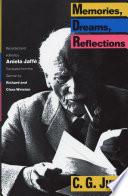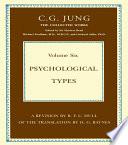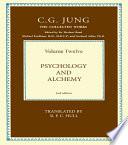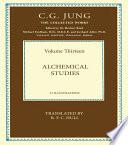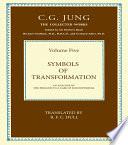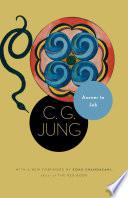“I am not what happened to me, I am what I choose to become.”
Variant: I am not what happens to me. I choose who I become.
Explore the profound wisdom of psychologist Carl Gustav Jung, as he delves into self-discovery, human psyche, and embracing our true selves. Gain insight into the transformative power of choice, meaning, and personal growth through his timeless words.
Carl Gustav Jung, a Swiss psychiatrist and psychoanalyst, is widely regarded as one of the most influential psychologists in history. He founded analytical psychology and his work has had a significant impact on various fields including psychiatry, anthropology, literature, philosophy, psychology, and religious studies. Jung developed a friendship with Sigmund Freud, the founder of psychoanalysis, but they eventually parted ways due to their diverging theories. This led to the establishment of Jung's analytical psychology as a comprehensive system separate from psychoanalysis. With concepts such as individuation and the collective unconscious, Jung made important contributions to our understanding of human psychology.
Jung was born in 1875 in Switzerland to a family with strong religious ties. His interest in psychiatry was sparked during his internship under Eugen Bleuler at Burghölzli psychiatric hospital. On Bleuler's recommendation, Jung familiarized himself with the writings of Sigmund Freud and became a qualified proponent of psychoanalysis. He sent Freud his research papers and later met him for an extensive discussion that lasted 13 hours. They collaborated for six years before tensions caused their relationship to fracture. Despite this rift, Jung's work continued to evolve and he further developed his own theories such as the collective unconscious and archetypal phenomena.
Jung's personal life included a marriage to Emma Rauschenbach and an extramarital affair with Sabina Spielrein. Emma played an active role in supporting her husband's research and became a noted psychoanalyst herself. Together they had five children. Throughout his career, Jung sought to integrate spiritual and psychological aspects into his work, making him a unique figure within the field of psychology. His writings were published both during his lifetime and posthumously, solidifying his status as one of the most significant figures in psychological history

“I am not what happened to me, I am what I choose to become.”
Variant: I am not what happens to me. I choose who I become.
“People will do anything, no matter how absurd, in order to avoid facing their own souls.”
CW 12, par. 126 (p 99)
Psychology and Alchemy (1952)
Context: People will do anything, no matter how absurd, in order to avoid facing their own souls. They will practice Indian yoga and all its exercises, observe a strict regimen of diet, learn the literature of the whole world - all because they cannot get on with themselves and have not the slightest faith that anything useful could ever come out of their own souls. Thus the soul has gradually been turned into a Nazareth from which nothing good can come.
“The world will ask you who you are, and if you do not know, the world will tell you.”
Source: Memories, Dreams, Reflections
“Thus the soul has gradually been turned into a Nazareth from which nothing good can come.”
CW 12, par. 126 (p 99)
Psychology and Alchemy (1952)
Context: People will do anything, no matter how absurd, in order to avoid facing their own souls. They will practice Indian yoga and all its exercises, observe a strict regimen of diet, learn the literature of the whole world - all because they cannot get on with themselves and have not the slightest faith that anything useful could ever come out of their own souls. Thus the soul has gradually been turned into a Nazareth from which nothing good can come.
“We cannot change anything unless we accept it. Condemnation does not liberate; it oppresses.”
Variant: We cannot change anything unless we accept it.
Source: Modern Man in Search of a Soul
“Everything that irritates us about others can lead us to an understanding of ourselves.”
ii. America: The Pueblo Indians http://books.google.com/books?id=w6vUgN16x6EC&printsec=frontcover&dq=Jung+Memories+Dreams+and+Reflections&hl=en&sa=X&ei=LLxKUcD0NfSo4APh0oDABg&ved=0CDAQ6AEwAA#v=onepage&q&f=false (Extract from an unpublished ms) (Random House Digital, 2011).
Memories, Dreams, Reflections (1963)
Context: We always require an outside point to stand on, in order to apply the lever of criticism. This is especially so in psychology, where by the nature of the material we are much more subjectively involved than in any other science. How, for example, can we become conscious of national peculiarities if we have never had the opportunity to regard our own nation from outside? Regarding it from outside means regarding it from the standpoint of another nation. To do so, we must acquire sufficient knowledge of the foreign collective psyche, and in the course of this process of assimilation we encounter all those incompatibilities which constitute the national bias and the national peculiarity. Everything that irritates us about others can lead us to an understanding of ourselves. I understand England only when I see where I, as a Swiss, do not fit in. I understand Europe, our greatest problem, only when I see where I as a European do not fit into the world. Through my acquaintance with many Americans, and my trips to and in America, I have obtained an enormous amount of insight into the European character; it has always seemed to me that there can be nothing more useful for a European than some time or another to look out at Europe from the top of a skyscraper. When I contemplated for the first time the European spectacle from the Sahara, surrounded by a civilization which has more or less the same relationship to ours as Roman antiquity has to modem times, I became aware of how completely, even in America, I was still caught up and imprisoned in the cultural consciousness of the white man. The desire then grew in me to carry the historical comparisons still farther by descending to a still lower cultural level.
On my next trip to the United States I went with a group of American friends to visit the Indians of New Mexico, the city-building Pueblos...
Source: Synchronicity: An Acausal Connecting Principle (1960), p. 33
Context: Naturally, every age thinks that all ages before it were prejudiced, and today we think this more than ever and are just as wrong as all previous ages that thought so. How often have we not seen the truth condemned! It is sad but unfortunately true that man learns nothing from history.
Frequently misquoted as "Thinking is difficult, that's why most people judge" and close variants.
Flying Saucers: A Modern Myth of Things Seen in the Sky. (1959), C.G. Jung, R.F.C. Hull (translator) (Princeton Press, 1979, ISBN 9780691018225
Variant: "... the sole purpose of human existence is to kindle a light in the darkness of mere being.
Source: Memories, Dreams, Reflections (1963), p. 326
Source: The Archetypes and the Collective Unconscious (1934), p. 3-4
Context: A more or less superficial layer of the unconscious is undoubtedly personal. I call it the "personal unconscious". But this personal layer rests upon a deeper layer, which does not derive from personal experience and is not a personal acquisition but is inborn. This deeper layer I call the "collective unconscious". I have chosen the term "collective" because this part of the unconscious is not individual but universal; in contrast to the personal psyche, it has contents and modes of behaviour that are more or less the same everywhere and in all individuals.
p 110
The Undiscovered Self (1958)
Context: We are living in what the Greeks called the right time for a "metamorphosis of the gods," i. e. of the fundamental principles and symbols. This peculiarity of our time, which is certainly not of our conscious choosing, is the expression of the unconscious man within us who is changing. Coming generations will have to take account of this momentous transformation if humanity is not to destroy itself through the might of its own technology and science.
“Freedom stretches only as far as the limits of our consciousness.”
Paracelsus the Physician (1942)
Context: No one can flatter himself that he is immune to the spirit of his own epoch, or even that he possesses a full understanding of it. Irrespective of our conscious convictions, each one of us, without exception, being a particle of the general mass, is somewhere attached to, colored by, or even undermined by the spirit which goes through the mass. Freedom stretches only as far as the limits of our consciousness.
p 6
The Undiscovered Self (1958)
Context: Any theory based on experience is necessarily statistical; that is to say, it formulates an ideal average which abolishes all exceptions at either end of the scale and replaces them by an abstract mean. This mean is quite valid though it need not necessarily occur in reality. Despite this it figures in the theory as an unassailable fundamental fact. … If, for instance, I determine the weight of each stone in a bed of pebbles and get an average weight of 145 grams, this tells me very little about the real nature of the pebbles. Anyone who thought, on the basis of these findings, that he could pick up a pebbles of 145 grams at the first try would be in for a serious disappointment. Indeed, it might well happen that however long he searched he would not find a single pebble weighing exactly 145 grams. The statistical method shows the facts in the light of the ideal average but does not give us a picture of their empirical reality. While reflecting an indisputable aspect of reality, it can falsify the actual truth in a most misleading way.
Source: Modern Man in Search of a Soul (1933), p. 126
Context: Every civilized human being, whatever his conscious development, is still an archaic man at the deeper levels of his psyche. Just as the human body connects us with the mammals and displays numerous relics of earlier evolutionary stages going back to even the reptilian age, so the human psyche is likewise a product of evolution which, when followed up to its origins, show countless archaic traits.
Source: The Integration of the Personality (1939), p. 285
“Nights through dreams tell the myths forgotten by the day.”
Source: Memories, Dreams, Reflections
“When an inner situation is not made conscious it appears outside as fate.”
Variant: What we do not make conscious emerges later as fate.
"The Art of Living", interview with journalist Gordon Young first published in 1960
Variant: [T]here are as many nights as days, and the one is just as long as the other in the year's course. Even a happy life cannot be without a measure of darkness, and the word "happy" would lose its meaning if it were not balanced by sadness.
a special instance of love at first sight
Aion (1951). CW 9, Part II: P.338.30
The Psychology of the Unconscious (1943)
Chap. 11 (Psychotherapists or the Clergy), p. 229 http://books.google.com/books?id=mAsPAQAAIAAJ&q=%22Among+all+my+patients+in+the+second+half+of+life+that+is+to+say+over+thirty+five+there+has+not+been+one+whose+problem+in+the+last+resort+was+not+that+of+finding+a+religious+outlook+on+life%22&pg=PA229#v=onepage
Modern Man in Search of a Soul (1933)
“We meet ourselves time and time again in a thousand disguises on the path of life.”
Source: The Collected Works of C. G. Jung
Source: On the Psychology of the Unconciousness
“Knowing your own darkness is the best method for dealing with the darknesses of other people.”
Variant: Knowing your own darkness is the best method for dealing with the darknesses of other people.

